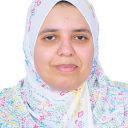Feeding others and combating hunger is one of the most deeply entrenched traditions in the Arab Peninsula from pre-Islamic times. Quranic verses and Islamic teachers later reaffirmed this practice, and it is now considered among the most commended philanthropic and social solidarity practices to influence philanthropic giving in the Gulf Cooperation Council (GCC) countries and the Muslim world at large.
With several Quranic verses and Prophet Muhammed (PBUH)’s Hadiths encouraging this practice, special emphasis was given to feeding the poor during the Holy Month of Ramadan. This practice can be seen in the mushrooming of the charitable giving and social solidarity initiatives of both individual and institutional donors in the GCC, transcending social, ethnic, and geographical boundaries. Stressing its sustainability, it is religiously classified as running a voluntary charity (Sadaqah Jariyya).
Inspired by this deeply embedded Islamic ritual and Arabian tradition of feeding others, Mohammed Bin Rashed Al Maktoum Global Initiatives launched the ‘1 Billion Meals Endowment’ campaign in Ramadan 2023. It seeks to raise funds for a value of AED 1 billion to set up the biggest sustainable food endowment worldwide.
Initiated by the ruler of Dubai, the campaign reflects the Emirate’s humanitarian aid approach that institutionalizes sustainable solutions to developmental challenges. It builds on the previously organized Ramadan campaigns of ‘10 Million Meals’, ‘100 Million Meals’ and ‘1Billion Meals’ in 2020, 2021 and 2022 respectively. While the earliest campaign focused on the UAE by alleviating the impact of the outbreak of COVID-19 and its lockdown, the food campaign expanded regionally in 2021 to cover the disadvantaged in more than twenty Arab, Asian, and African countries. The Ramadan 2022 campaign targeted the distribution of 1 billion Meals in about fifty countries worldwide.
With direct alignment with SDG 2 (erasing hunger and achieving food security) and clearly overlapping with other goals such as SDG3 (establishing good health and wellbeing) and SDG 17 (partnerships), the campaign sets itself apart from others in terms of its ambitious global scale, its sustainability and multi-stakeholder partnership approach.
Dr. Moez El Shohdi, the President & Chief Executive Officer of the Food Banking Regional Network described the campaign as ‘a unique and brilliant idea, it serves many of the SDGs to help ensure a better future and a better life.’
During the Holy Month of Ramadan, the ‘1Billion Meal Endowment’ campaign successfully received more than AED 852 million donated by 180,000 individuals, corporations, and public institutions. One of the factors behind the success of these collaborations was the intensive public promotion of these campaigns.
Channeling wealth towards philanthropic giving is not new to this region, but the investment of wealth from diverse sources of giving towards providing a food safety net for vulnerable communities and addressing food security in the most nutritionally insecure regions is a huge undertaking. In a globalized world with complex and mushrooming challenges, the 17th goal of the SDGs encourages working on partnerships to reach the UN goals.
Consequences of food insecurity, pandemics, and climate change have placed particular emphasis on the role of collective and multi-sectoral solutions and approaches. Building upon former constructive local collaborations, the first Emirati 10 Million Meals in 2020 coordinated the charitable fund and voluntary efforts to domestically distribute its target number of meals. With the expansion of the following food campaigns, the range of local and regional partnerships needed to execute this initiative, whether it be in raising funds or distributing services, also grew.
During the Holy Month of Ramadan, the ‘1Billion Meal Endowment’ campaign successfully received more than AED 852 million donated by 180,000 individuals, corporations, and public institutions. One of the factors behind the success of these collaborations was the intensive public promotion of these campaigns. They related their efforts to the rewards of feeding fasting people, spreading virtuous deeds, and showing social solidarity. The role of digital infrastructure and e-giving platforms also played a facilitating role through friendly e-giving systems in the UAE. These platforms facilitated the process of donating money through assigned bank accounts, SMS messages and allocating real estate or corporate stocks in the national stock market.
In terms of sustainability, the establishment of an endowment under this initiative is a stepping stone towards securing the sustainability of exerted efforts. Islamic-based endowments ‘Awqaf’ are well-known practices in the Muslim world. Historically, Muslims from all socio-economic classes used to establish endowments by donating real estate, land, or cash money to be managed by a trustee and invested for the sake of a charitable cause or a private one. This institutionalized form of giving allows the generation of revenues from investments that sustain the fulfillment of founders’ goals.
Similar versions of endowments are also inspired by other religious and spiritual traditions, for example in Christianity, Judaism, or Hinduism. Currently, establishing an endowment for combating hunger and food security could potentially overcome donation shortages during times of financial uncertainties. It could also serve as a sustainable source of humanitarian relief and an emergency response fund in a world where frequent natural disasters, climate change, and conflict continue to disrupt livelihoods and long-term development prospects.
Innovative in its approach to food security, the ‘One Billion Meal Endowment’ attempts to indigenize the SDGs in the region. It is consistent with similar efforts are currently going on in the Gulf States to utilize religiously inspired and socially rooted philanthropic institutions and charity forms. Indigenous mechanisms not only safeguard donations and assets and secure the sustainability of their investment and revenues, but also attract additional local and regional partnerships and collaborations that can further solidify the work and expand its reach. They localize the SDGs to address domestic concerns though they reflect a global shared mission.
Riham Khafagy is an Assistant Professor and GCC Philanthropy Expert at Zayed University, UAE



Comments (0)